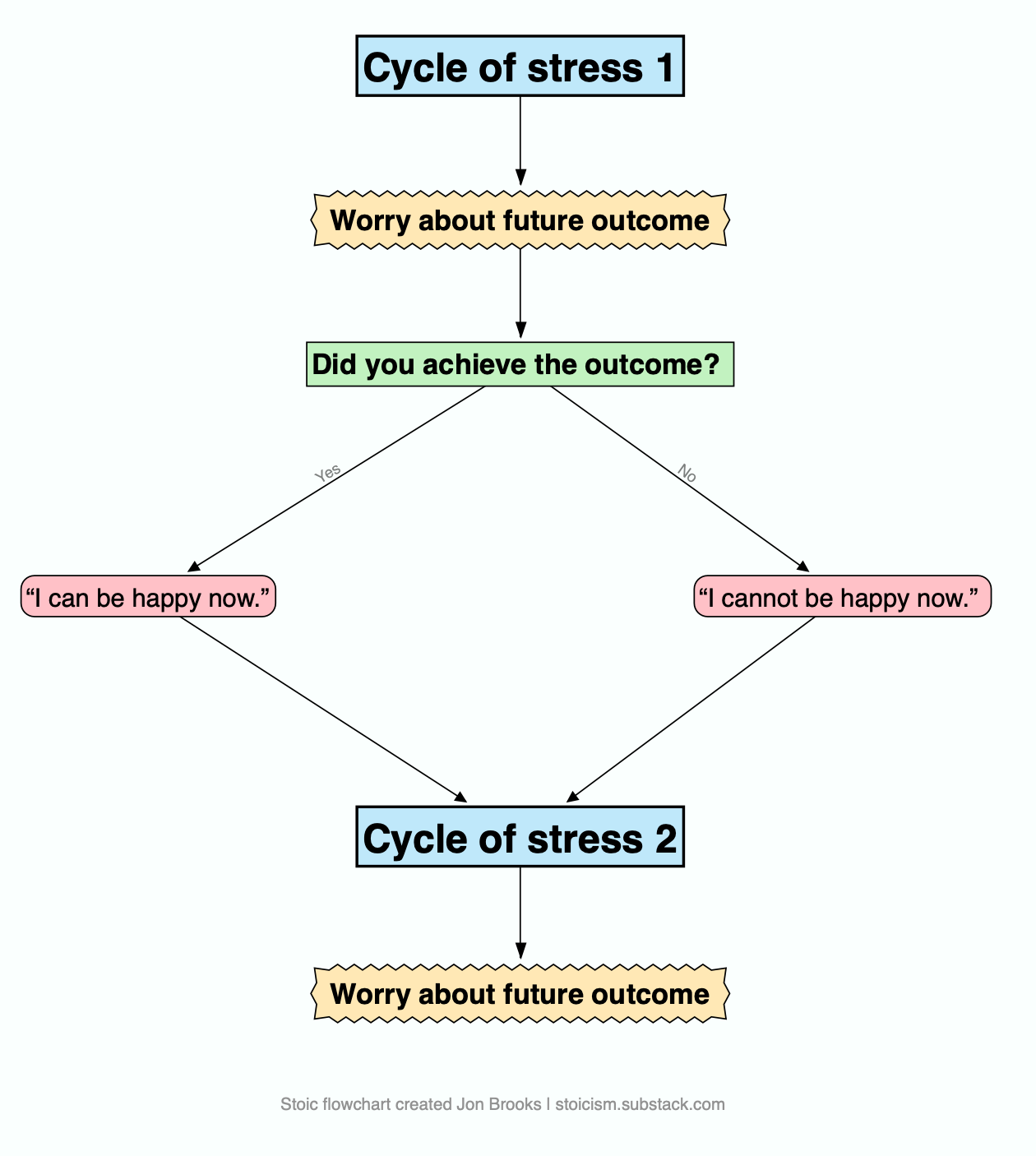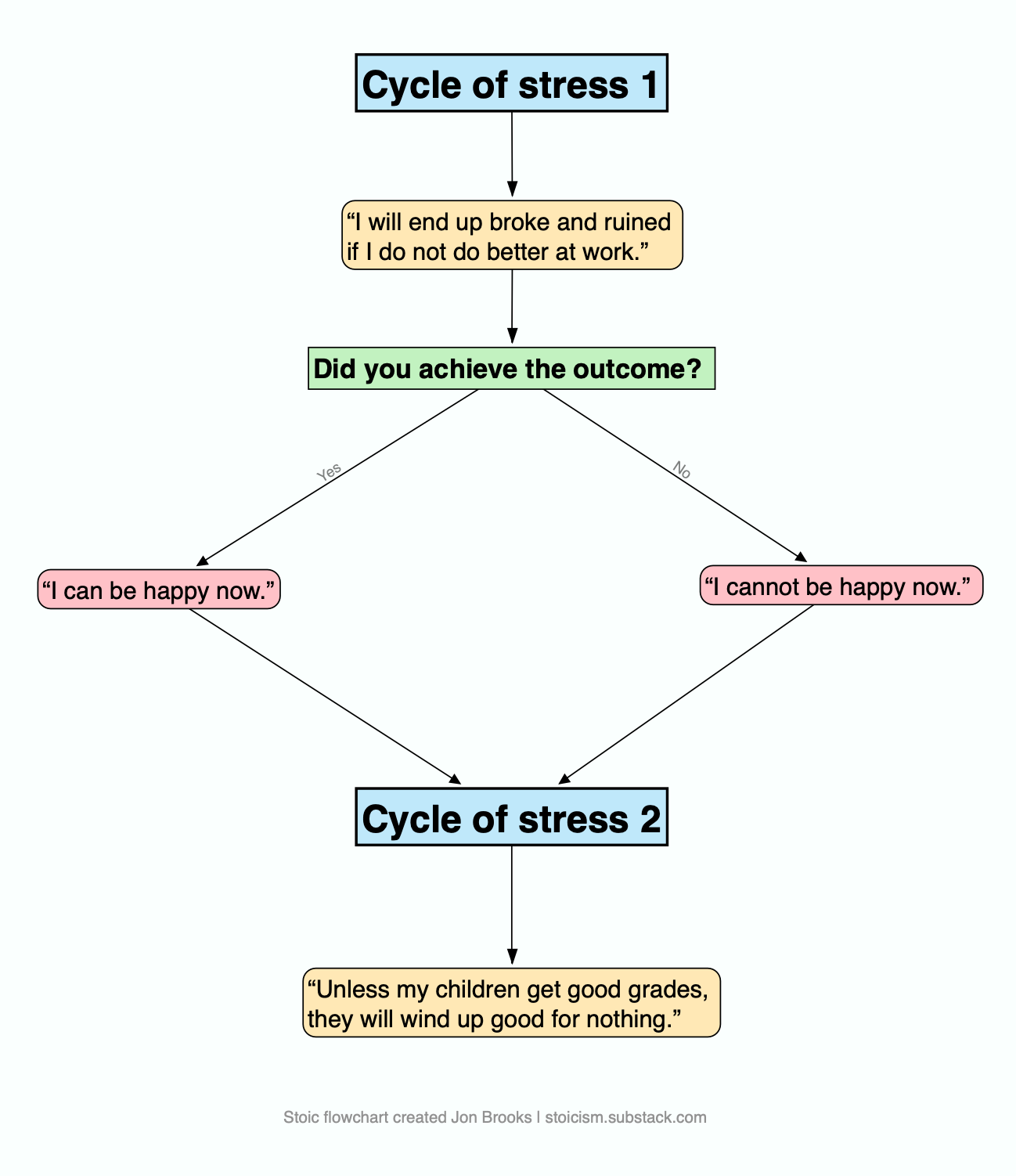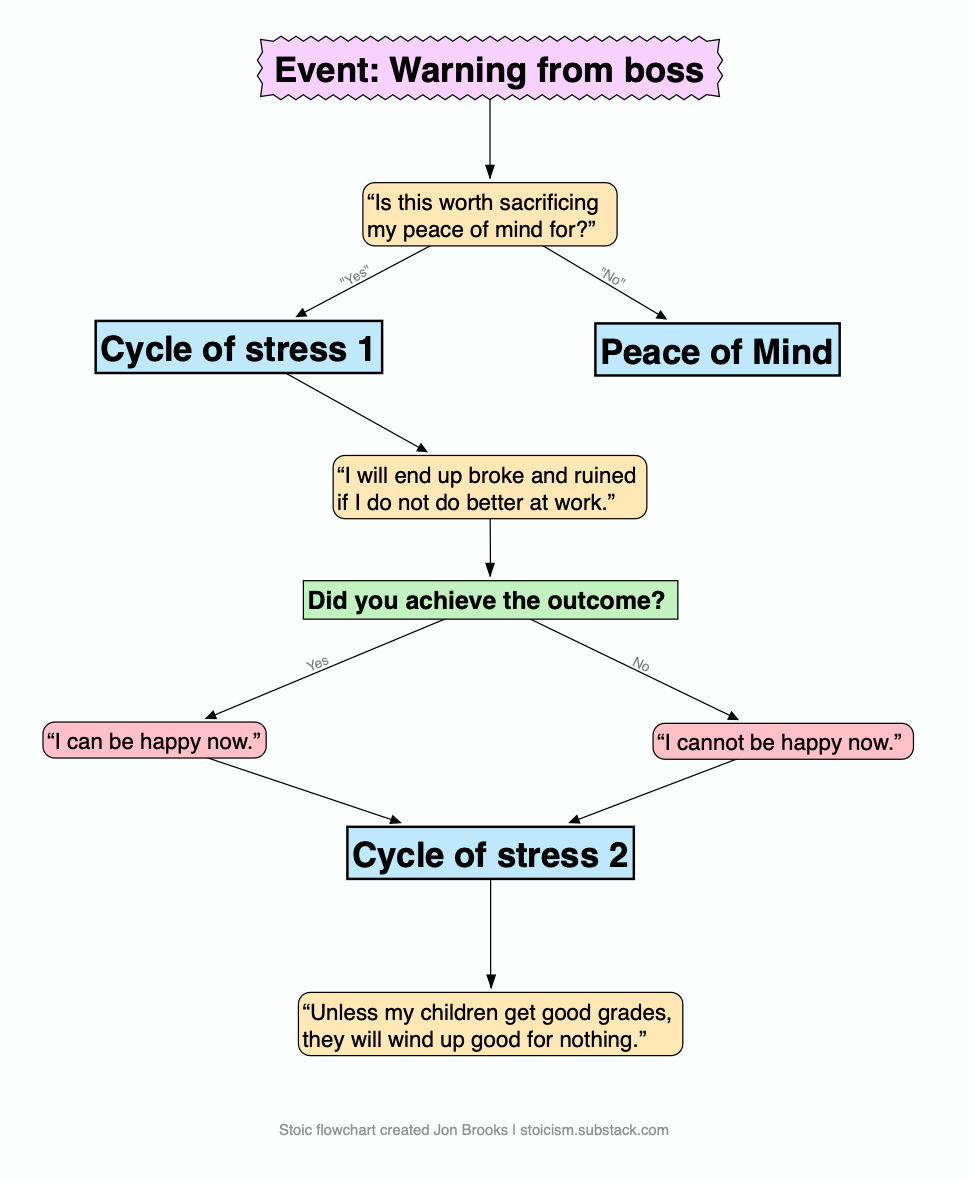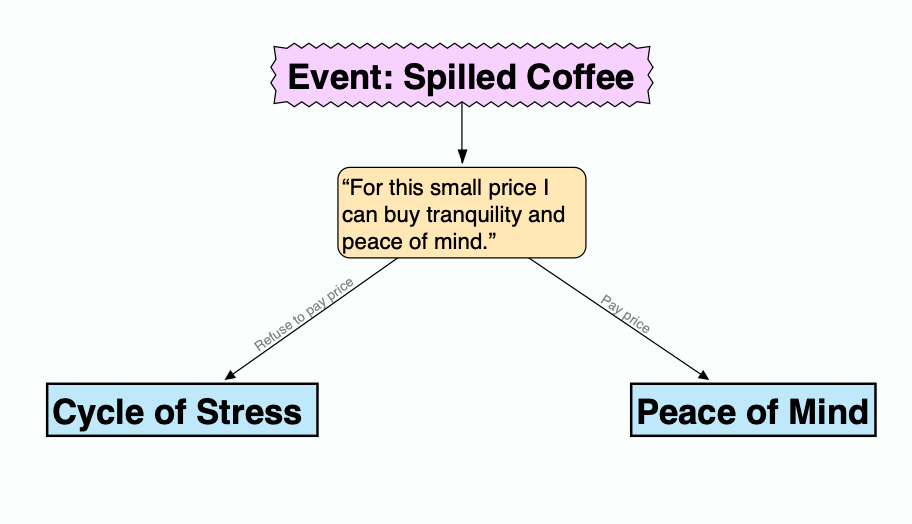Enchiridion Chapter 12 / 53
In today’s lesson, we will look at the irrational worry model built around “If/then” thinking about the future, why this causes us stress, and how to break the cycle.
Finally, we take a look at Epictetus’ Stoic technique for not just avoiding feelings of stress, but to actually use stressful events to make us more tranquil.
I/ The Cycle of Stress
If you want to make progress as a Stoic, do not say things to yourself like:
- “I will end up broke and ruined if I do not do better at work.”
- “Unless my children get good grades, they will wind up good for nothing.”
- “If upset my father by telling him the truth, he will hate me.”
- “If I cannot travel the world, that means I’m a failure.”
- “If I leave my wife, she will be depressed and couldn’t cope.”
In all of these examples, you are essentially worrying about external outcomes, and that worry is influencing the way you make decisions in the present.

This way of thinking is unwise, because you are stuck in a cycle of stress that has no real lasting outcome of happiness. It is based on a false promise.

Many of us are addicted to playing a game of sacrificing our present peace of mind for the promise of happiness in the future. Or conversely, taking on some stress in the present for the promise of avoiding greater stress in the future.
II/ Transmute Stress into Tranquility
From a Stoic perspective, it is better to upset your father or spouse with authentic communication than to spend decades feeling uneasy and fake in the relationship.
And it is much better to be poor and free of grief than rich and miserable.
So in practical terms, how can you break the cycle of stress?
Every time you experience a situation that would ordinary have caused you stress, you can ask yourself the following question:
Is this situation worth sacrificing my tranquility for?
Invariably, the answer will be, “no” because almost nothing is worth sacrificing your tranquility for. When you sacrifice your tranquility, you are not only miserable, but less effective.
With this in mind, you can begin the process of training yourself to view things as a trade for peace of mind.

You can start with small things like spilled coffee or bad traffic, and when such a situation arises you can repeat to yourself:
For this small price I can buy tranquility and peace of mind.

Remember that nothing is completely free. There will always be tradeoffs in life.
You must be prepared to be treated rudely by people, to be disrespected by family members and co-workers.
If you allow such incidents to disturb your tranquility, you should never have entrusted your peace of mind to them in the first place.
ENCHIRIDION CHAPTER TWELVE, EPICTETUS, TRANSLATION BY ROBERT DOBBIN:
“[1] If you want to make progress, drop reflections like: ‘I will end up destitute if I don’t take better care of my affairs,’ or, ‘Unless I discipline my slave, he’ll wind up good for nothing.’ It is better to die of hunger free of grief and apprehension than to live affluent and uneasy. Better that your slave should be bad than that you should be unhappy.
[2] For that reason, starting with things of little value – a bit of spilled oil, a little stolen wine – repeat to yourself: ‘For such a small price I buy tranquillity and peace of mind.’ But nothing is completely free. So when you call your slave, be prepared for the possibility that he might ignore you, or if he does answer, that he won’t do what he’s told. He is not worth entrusting with your peace of mind.”
